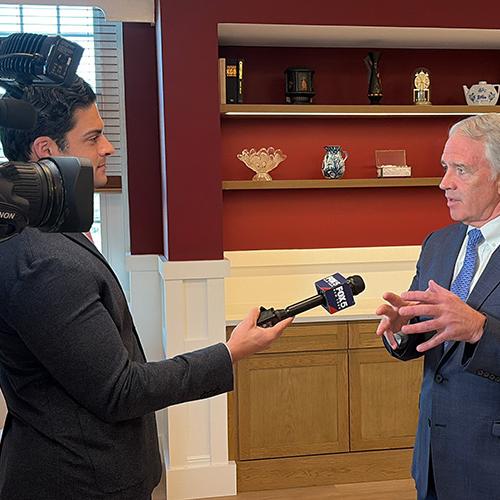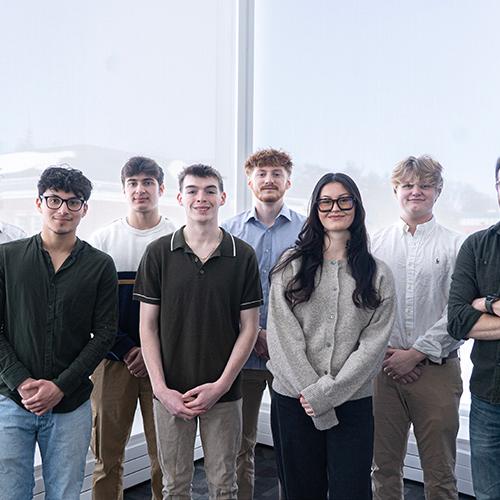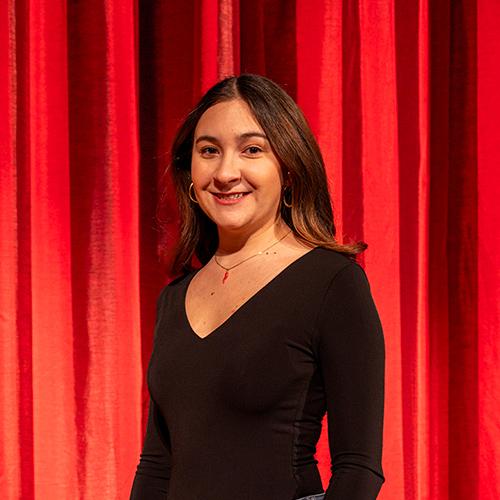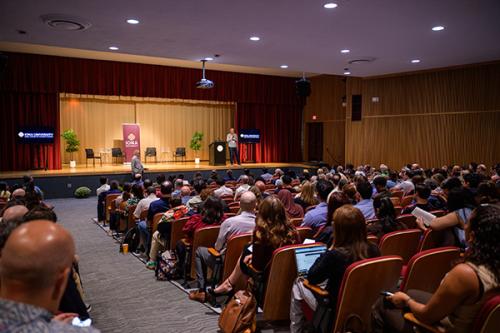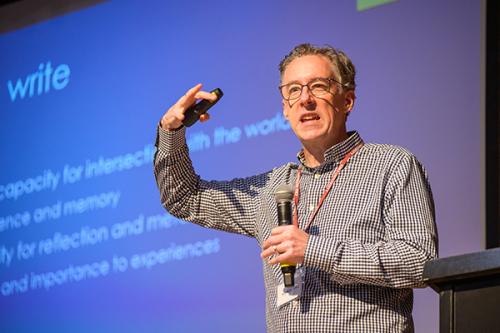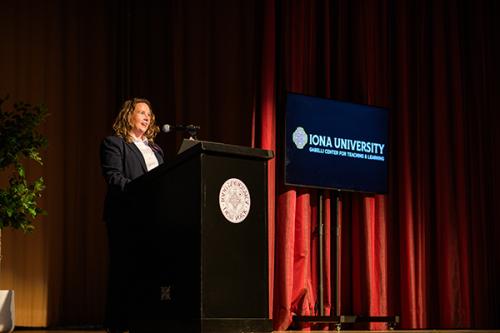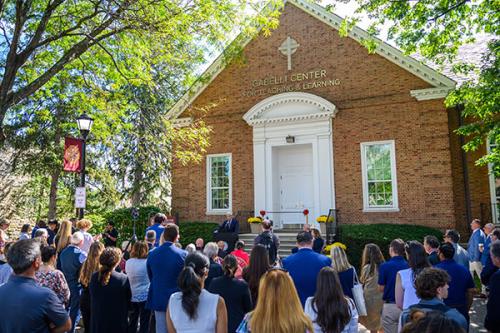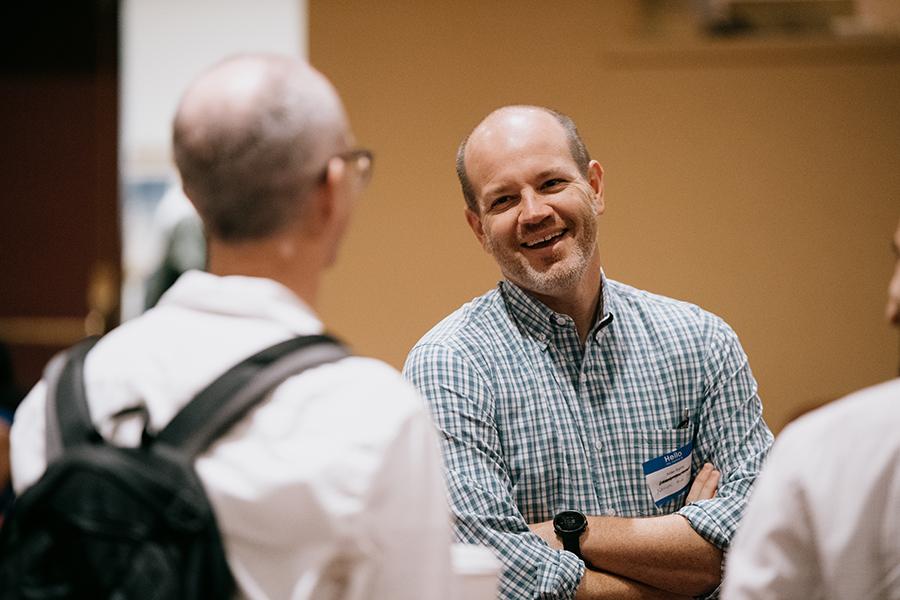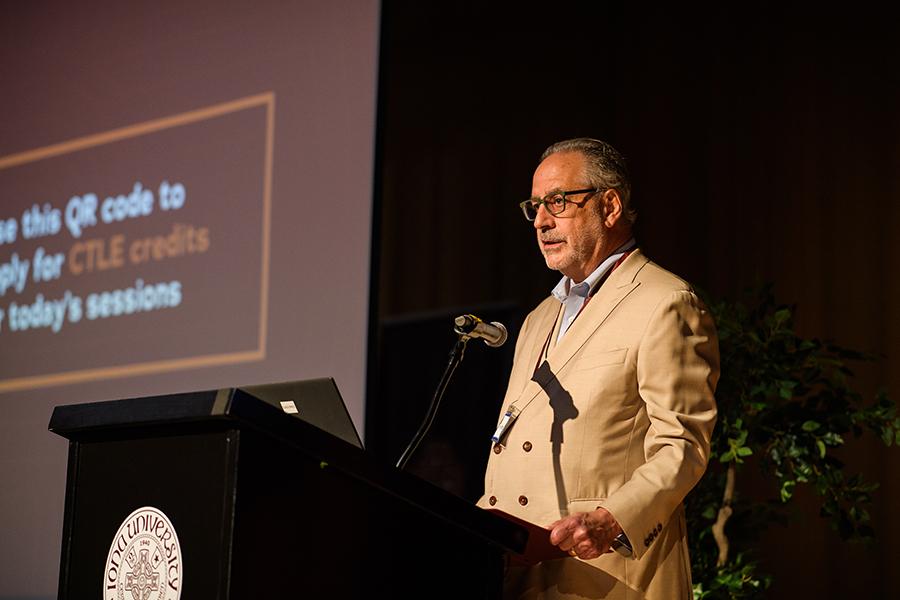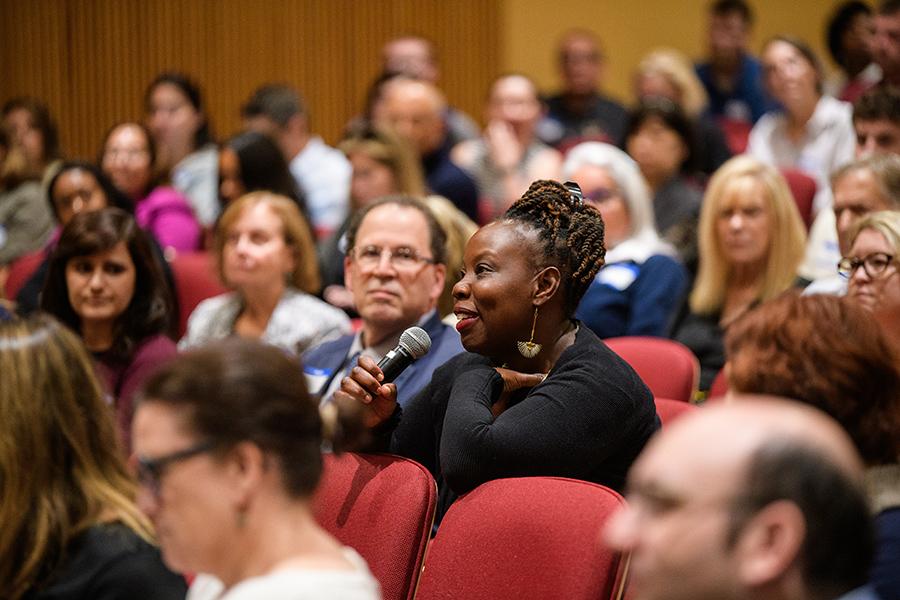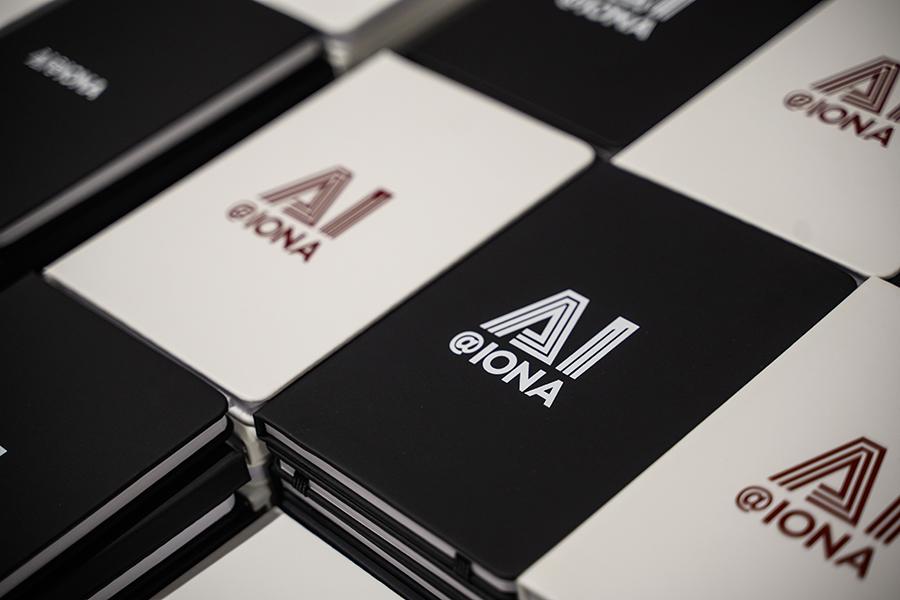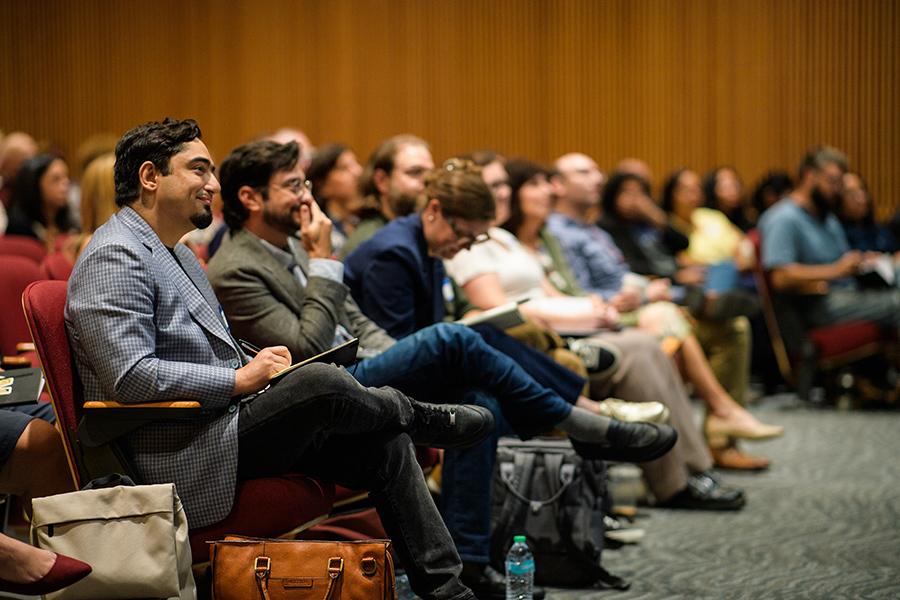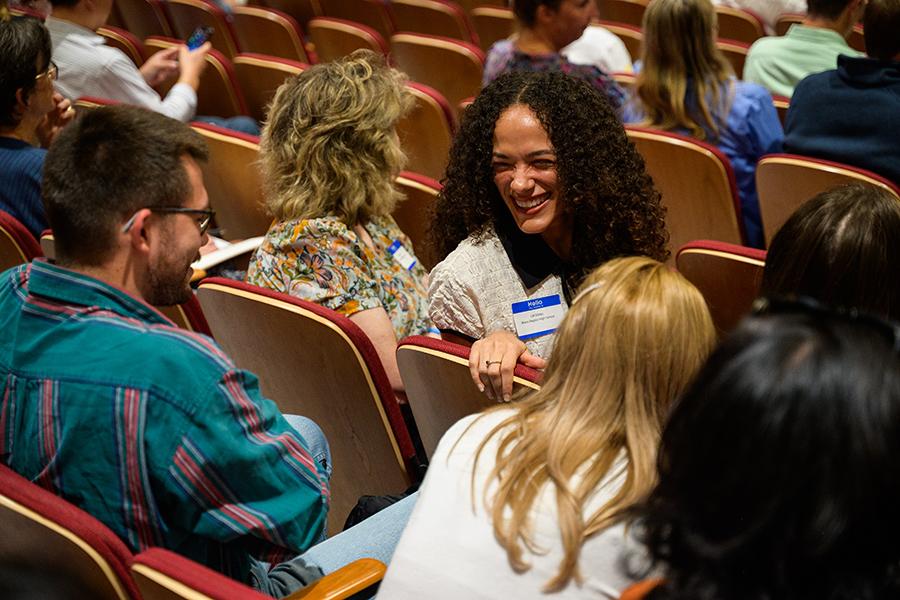‘The Future of Teaching in the AI Age’ Draws Hundreds of Educators to Iona University
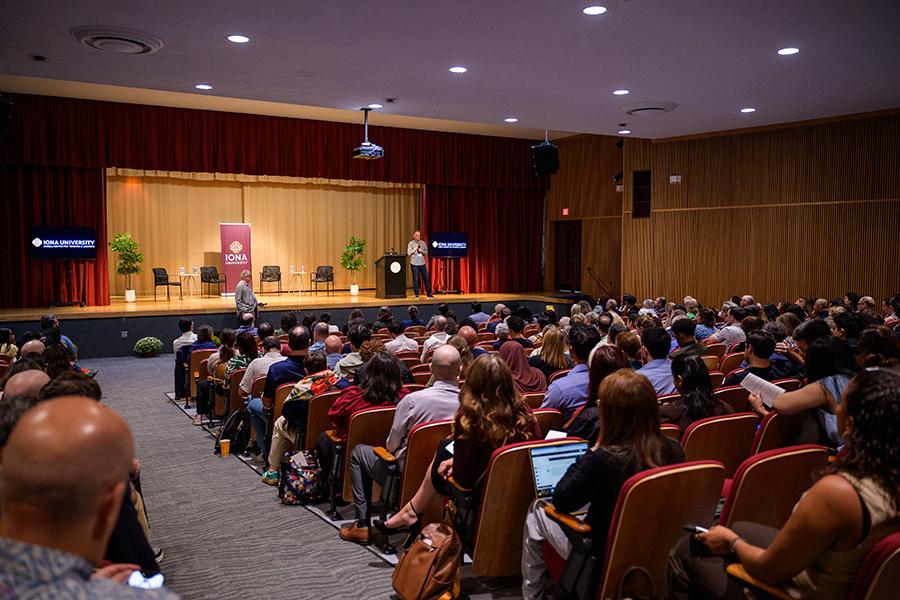
New Rochelle, N.Y. – Iona University welcomed over 200 K-12, higher ed and Catholic school educators for a full-day conference titled “The Future of Teaching: Writing, Reading & Thinking in the AI Age,” exploring how artificial intelligence (AI) can both transform and revitalize enduring educational values.
Hosted by the Gabelli Center for Teaching & Learning on Friday, September 26, the event attracted educators from a wide range of institutions, including 11 colleges and universities, 11 public school districts and more than 20 Catholic, public and independent high schools from as far away as Pennsylvania and Massachusetts.
John Warner, award-winning author of “More Than Words: How to Think About Writing in the Age of AI,” delivered the keynote address, providing an insightful guide on how educators can continue to harness and benefit from the powers of reading and writing regardless of technological shifts. Afterward, Warner reflected on Iona’s leadership, saying:
“Iona University is ahead of many other universities, and so I am super encouraged,” he said. “The University takes its mission seriously – to develop human beings. I think that’s important, so that the use of AI, or integration of AI, is going to come in a way that supports human flourishing, as opposed to a substitute for human output or labor. That approach is not oriented around speed and efficiency, which are the initial promises of this technology, but around extending human capacity and creativity. I think that can be achieved, but it takes experimentation, exploration, collaboration – and so people like the [Gabelli] Fellows can come and do that work together and then push that information out elsewhere. And I think it’s just a great model for how places should be thinking about tackling these problems.”
The conference showcased Iona’s growing leadership in AI-aware pedagogy, an effort that has been driven in large part by faculty-led innovation through the Gabelli Center’s Presidential and Provost Fellowships. Faculty presentations included:
- “Writing and Thinking: Tracing Interests and Influences in the AI Age” led by Ivy Linton Stabell, Ph.D., exploring how students can learn to shape their own intellectual perspective apart from, in concert with, and in response to AI.
- “Do They Even Need to Read Anymore?” with Christine Hardigree, Ph.D., and Eric Abrams, Ph.D., interrogating AI literacy versus traditional literacy and considering what the data says about the current state of reading in the U.S.
- “Data Science for Future Leaders,” a panel presentation with faculty from Iona’s pioneering National Science Foundation project, including Drs. Sunghee Lee, Benjamin Gaines, Smiljana Petrovic, Nora Slonimsky and Jeanne Zaino, exploring how the principles of data science can be infused across a school’s curriculum.
“At Iona, we are choosing to engage with AI not because it is fashionable, but because it is necessary. Our students, and of course us as educators as well, are entering a world where AI will shape – or has begun to shape already – nearly every profession, from healthcare to business to education itself,” said Tricia Mulligan, Ph.D., provost and senior vice president for Academic Affairs at Iona. “AI can provide outputs in seconds, but it cannot help us discern whether those outputs are true, fair, ethical, or good. That work remains profoundly human. Our role as educators is to guide students in cultivating this habit of discernment, so that they graduate not just knowing how to use the latest tool, but how to direct it toward the service of humanity.”
The Gabelli Center for Teaching & Learning reinforces Iona’s institutional momentum and stands as a pillar to its enduring commitment to Catholic education. Shaped by the vision of Marc Gabelli, its work is made possible through the generosity of Mr. Gabelli; his mother, Elaine Madonna Gabelli, a longtime Catholic elementary school teacher; and the EMG Madonna Foundation, which is committed to supporting and strengthening the future of Catholic schools.
Among its broader initiatives, the Gabelli Center has launched scholarships for aspiring Catholic school teachers, supported AI training for K-12 educators, and hosted a robust speaker series featuring international experts in education, ethics, and artificial intelligence. As part of the conference, Iona also hosted a ribbon cutting and blessing ceremony for the Gabelli Center.
On social media, the conference drew praise for its content, organization, and accessibility. Attendees especially appreciated that the conference was offered free of charge, removing barriers for schools without professional development budgets.
“Along with several colleagues who attended, I found the sessions illuminating and the day well planned,” wrote Kathleen McGreal, of Scarsdale High School. “Also, as a parent to a current student, I caught a glimpse into the caliber of instruction, the culture of collaboration and collegiality, and the caring values of Iona as an institution of higher learning. My daughter is fortunate to be a student here as Iona not only stays true to its founding mission but also prepares students for a world shaped by the presence of AI. This forward-looking vision takes courage and thoughtful leadership and bravo to President Carey and all of Iona’s professors and staff. As a current teacher, I am so grateful to the Gabelli family for their generosity in establishing this center to support future generations of educators.”
ABOUT IONA
Founded in 1940, Iona University is a master's-granting private, Catholic, coeducational institution of learning in the tradition of the Edmund Rice Christian Brothers. Iona's 45-acre New Rochelle campus and 28-acre Bronxville campus are just 20 miles north of Midtown Manhattan. With a total enrollment of over 4,000 students and an alumni base of 55,000 around the world, Iona is a diverse community of learners and scholars dedicated to academic excellence and the values of justice, peace and service. Iona is highly accredited, offering undergraduate degrees in liberal arts, science and business administration, as well as Master of Arts, Master of Science and Master of Business Administration degrees and numerous advanced certificate programs. Iona students enjoy small class sizes, engaged professors and a wide array of academic programs across the School of Arts & Science; LaPenta School of Business; NewYork-Presbyterian Iona School of Nursing & Health Sciences; and Hynes Institute for Entrepreneurship & Innovation. Iona also continues to be recognized in prestigious national rankings. Most recently for 2025, Iona has been named one of the nation’s best colleges by The Princeton Review, The Wall Street Journal, Forbes and others. Additionally, U.S. News & World Report recognized Iona as one of top for social mobility in the country, while Georgetown University's Center on Education and the Workforce (CEW) ranked an Iona degree in the top 6 percent nationally for long-term return on investment. Iona’s LaPenta School of Business, meanwhile, is also accredited by AACSB International, a recognition awarded to just 6 percent of business schools worldwide. In addition, The Princeton Review once again named Iona to its “Best Business Schools for 2025,” recognizing both its on-campus and online MBA programs. Connecting to its Irish heritage, Iona also opened a new campus in County Mayo, Ireland, located on the historic 400-acre Westport House Estate. A school on the rise, Iona officially changed its status from College to University on July 1, 2022, reflecting the growth of its academic programs and the prestige of an Iona education.
